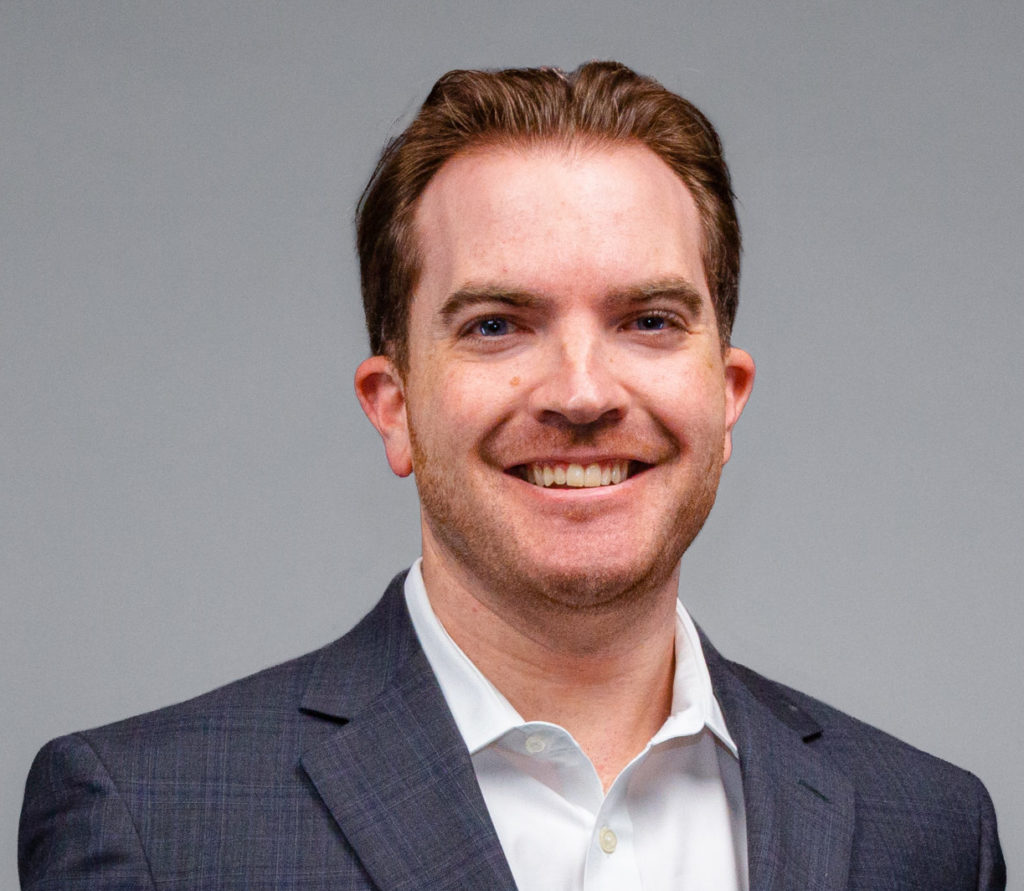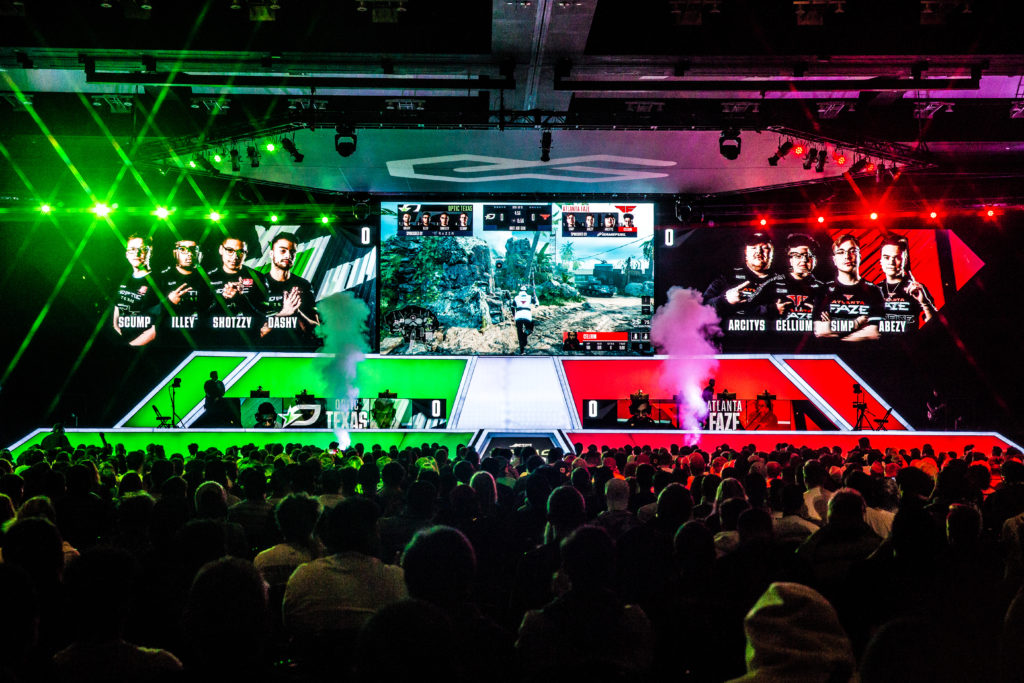Envy Gaming, the Dallas-based esports and gaming company, has drafted Kane Russell Coleman Logan attorney Johnathan Jordan as its vice president of legal.
Jordan, who immersed himself in esports four years ago, said Envy CEO Adam Rymer approached him with the opportunity in January. With the move, Jordan becomes one of the first in-house counsel at a professional esports and gaming organization.
“It is a great opportunity to be joining Envy, especially now,” Jordan said. “We have so many major and innovative projects in the works, some of which have recently launched and some developing over the next few years that are really going to propel Envy, the North Texas gaming community and the entire esports industry forward.”
Jordan, a Baylor Law School graduate, comes from a family of lawyers. His dad, Jim, is a shareholder and former chairman at Munsch Hardt and his sister, Allie, is a corporate counsel at Safe Harbor Marinas.
KRCL founding director Mike Logan said in a statement that though they are sorry to see Jordan go, they are “excited to watch his career continue to blossom.
“Johnathan is an example of what KRCL is about. He came to us as a young lawyer and grew as an accomplished legal advisor and valuable resource within the esports space. We try to give all of our lawyers the tools and resources to grow their respective practices. We know when our lawyers flourish, so does our firm.”
In a Q&A with The Texas Lawbook, Jordan casts about the biggest challenges facing the fast-growing industry, his favorite esport and some of the lawyers and firms carving out esports and gaming practices.

The Texas Lawbook: Why did you decide to make the move to Envy?
Johnathan Jordan (pictured): As I really dove into the esports community and started developing a practice at my prior law firm, Kane Russell Coleman Logan PC, I began to think that going in-house with a professional esports organization was where I wanted my career to go. Being from North Texas, thatorganization was Envy. Envy has been a leader in the space for many years, pushing the limits of entertainment and competition related to gaming, and I have followed them very closely ever since I started in esports. In 2020, their current CEO, Adam Rymer, joined the organization. I connected with him very early on and have stayed in touch with him over the last couple of years. Last year, he mentioned the possibility of Envy adding an in-house attorney in the future, so it was definitely something that was on my radar. When we were having a catch-up coffee in January, he mentioned that they were looking to bring someone on in-house by Q2, and asked if I was interested. Of course, I said yes.
The Lawbook: Do you have anyone else in your legal department?
Jordan: Nope! It’s just me, and I’m Envy’s first in-house attorney! Envy is already a well-oiled machine and maintains a network of excellent external partners, but I will be building out its first formal legal department, which presents a great opportunity, as well as challenges. Luckily, I have great resources here that will help streamline the process.

Scene from the Call of Duty League Major earlier this year at Esports Stadium Arlington, the largest esports stadium in North America.
The Lawbook: Why did you decide to develop an expertise in esports?
Jordan: Esports and gaming are the fastest growing forms of entertainment, and for those industries, Dallas is a major hub of growth, thanks in large part to everything Envy has done. I grew up gaming, so I saw an opportunity to combine a past passion with what takes up most of my time now ― practicing law. It is also a young industry, in that the talent (professional players, coaches, creators, streamers, etc.) in the industry and the business professionals, company owners and movers and shakers ― are closer to my age, and the industry as we know it, at least with the more focused attention on it, is still young. All of this means there is a huge opportunity to help shape the industry and push it in a direction that will lead to long-term sustainability.
The Lawbook: Which lawyers or firms are leaders in esports in Texas?
Jordan: Most people in the industry would agree that Bryce Blum and his firm ESG (based in California) are among the leading voices in the industry, as they represent some of the biggest and most successful professional esports organizations in the world. Greenberg Traurig [including Dallas shareholders Tom Woolsey and Steve Walkowiak] also has a robust esports practice group and does great work in the space. I would be remiss, however, if I did not include KRCL in this list. Before I joined Envy, I was doing a lot to develop an esports practice at the firm, which was one of the first mid-sized, regional firms to enter the space. I have no doubt that KRCL will continue to build its reputation in the industry and remain in the conversation as a leader in the space.
The Lawbook: Do you have a favorite esport and/or esport athlete?
Jordan: I follow Call of Duty the most, as Call of Duty was one of the primary games I played growing up (and still play when I have time and when my wife tolerates it). The Call of Duty League is probably most similar to traditional sports leagues in that it consists of geographic-based teams. For people just starting to follow or pay attention to esports, it is also an easy game to follow. The live competitions are also great events to be a part of and rival any professional sporting event – Envy actually just hosted the first live Call of Duty League event of 2022 at Esports Stadium Arlington, which Envy serves as the operating partners for, in March.
The Lawbook: What are the biggest challenges facing the industry?
Jordan: Because the industry is still young, it is definitely still going through some growing pains. In the past, I would have said legitimization of the industry was a major challenge. However, I think we are quickly getting past that. COVID was actually a major help in that regard. When traditional sports completely shut down, the spotlight turned directly on esports, and it shined, continuing to move forward largely uninterrupted. The biggest push for the future I see is making the industry sustainably profitable. There is so much money coming into the industry, but we are definitely still learning how to maximize ROI. We are also competing against traditional sports and legacy business models such as baseball, football and basketball that have had more than one hundred years in some cases to develop and figure out how to make them as profitable as they are today. With esports, there is pressure to figure this out in a fraction of the time, but do so in a way that is unique to esports.
The Lawbook: What are the legal questions unique to esports?
Jordan: Not necessarily unique to esports, but a couple evolving areas of the law to keep an eye on and see how they fit into the esports industry are cryptocurrency and NFTs. More and more professional esports organizations are starting to incorporate the concepts of decentralization, virtual experiences, crypto and NFTs into their business models, primarily through sponsorships and fan engagement. Especially in an industry that is considered an innovator, organizations are looking for additional ways to integrate crypto and NFTs. However, it remains to be seen how and to what extent these will be embraced. Any use of cryptocurrency and NFTs will raise regulatory and securities questions, many of which have yet to be answered. Those are the ones that will definitely keep me on my toes.
The Lawbook: How have your dad and sister made you a better lawyer?
Jordan: They, and my mom for that matter (the non-lawyer in our family), have been immensely supportive. Obviously, with my dad being a 35+ year attorney, he is the best professional resource I have. I am constantly talking to him about my career, and he gives me invaluable career guidance. If I ever have questions, he is the first one I go to. More recently, my sister has been invaluable as well, as she made the move to go in-house a couple of years ago. She was able to answer several questions I had about making my own move in-house.
On the subject of making me a better attorney, however, I owe the most to KRCL. The training and mentorship I received there was second to none. I was blessed to have the opportunity to work closely with firm co-founder Mike Logan. Not only was his mentorship invaluable, but he was my biggest cheerleader within the firm for developing an esports practice at the firm. The support I received from him and the rest of the firm was everything I could have asked for, and then some. The attorneys [in addition to Logan] I had the privilege of working most closely with at the firm — Brian Hail, Ken Riney and Jeff Novel — are some of the best in the business, and I owe a great deal to them.
